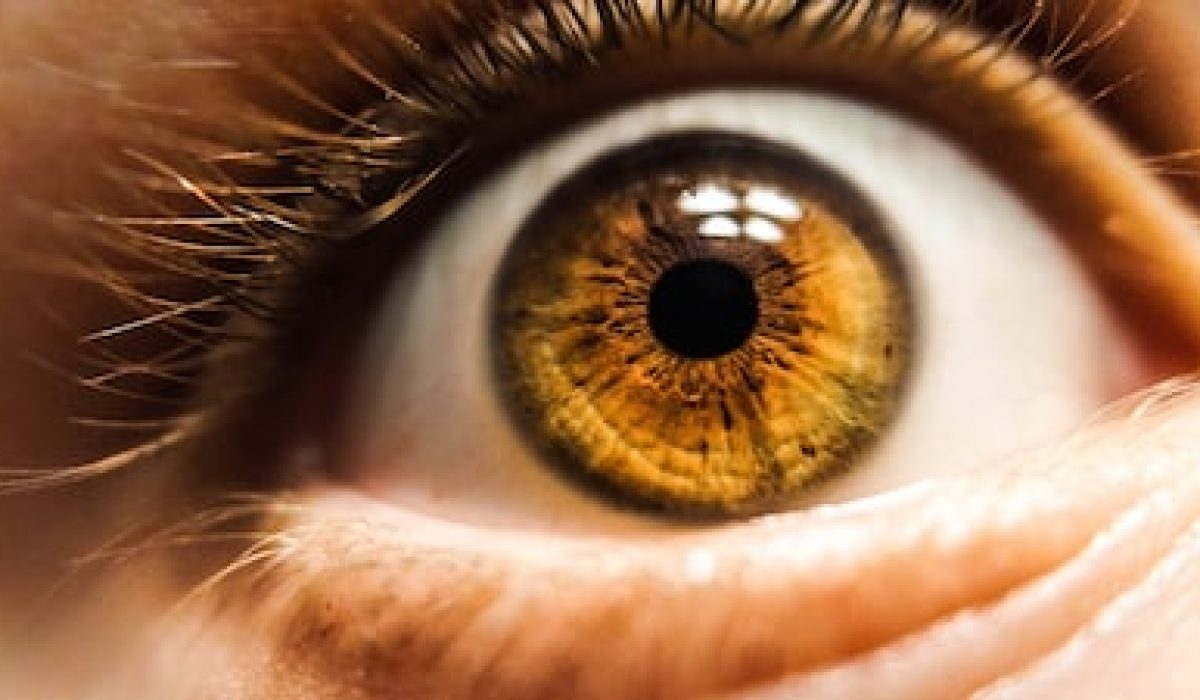The health of our eyes is of utmost importance, yet many of us neglect this crucial aspect of our overall wellbeing. That’s where an eye doctor comes in. Whether you’re experiencing vision problems or simply want to ensure your eyes are in optimal condition, understanding the role of an eye doctor is essential. In this blog post, we will discuss the different types of eye doctors, how to choose the best one for your needs, and the common eye conditions they treat. We will also delve into the importance of regular eye exams, what to expect during an eye doctor appointment, and provide valuable tips for maintaining good eye health. Additionally, we’ll explore resources and directories to help you find the right eye doctor for you. So let’s dive in and prioritize the health of our precious visual organs.
What Is An Eye Doctor? 👇
An eye doctor, also known as an ophthalmologist or optometrist, is a medical professional who specializes in diagnosing and treating various eye conditions and diseases. They are highly trained and knowledgeable in the field of eye health and are an essential part of maintaining good vision and eye care.
Eye doctors play a crucial role in ensuring the overall health of our eyes. They are responsible for conducting comprehensive eye exams, prescribing and fitting corrective lenses, and treating eye diseases and injuries. These professionals have the expertise to detect and diagnose eye conditions such as cataracts, glaucoma, macular degeneration, and diabetic retinopathy.
The first step in becoming an eye doctor is to complete a bachelor’s degree, followed by attending medical school for four years to obtain a Doctor of Medicine (MD) or Doctor of Osteopathic Medicine (DO) degree. After completing medical school, they undergo specialized training in ophthalmology or optometry during their residency, which can last for several years.
Different Types Of Eye Doctors
When it comes to taking care of your eyes, there are different types of eye doctors who specialize in specific areas of eye care. Understanding the different types of eye doctors and their roles can help you make informed decisions about your eye health. Let’s explore the different types of eye doctors and what they do.
Ophthalmologists: Ophthalmologists are medical doctors who specialize in the diagnosis and treatment of eye diseases and conditions. They complete four years of medical school, followed by a residency program in ophthalmology. Ophthalmologists are licensed to perform eye surgeries and provide comprehensive eye care, including prescribing medication and fitting contact lenses. They can also diagnose and treat complex eye conditions such as glaucoma, cataracts, and retinal disorders.
Optometrists: Optometrists are healthcare professionals who specialize in primary eye care. They complete a four-year Doctor of Optometry (OD) degree after undergraduate studies. Optometrists perform comprehensive eye exams and are licensed to diagnose and treat common eye conditions. They can prescribe corrective lenses, medication for certain eye conditions, and provide pre- and post-operative care for eye surgeries. Optometrists often work closely with ophthalmologists for coordinated patient care.
Opticians: Opticians are technicians who are trained to design, fit, and dispense eyeglasses and contact lenses prescribed by eye doctors. They provide valuable expertise in selecting eyewear that suits your prescription, lifestyle, and aesthetic preferences. Opticians are skilled in interpreting prescriptions and helping you find the right frames and lenses for optimal vision correction.
EYE DOCTOR SPECIALIZATION Ophthalmologist Diagnosis and treatment of eye diseases, eye surgeries Optometrist Primary eye care, eye exams, prescription eyewear Optician Eyewear selection, fitting, and dispensing
It’s important to note that while ophthalmologists and optometrists are both eye doctors, their roles differ based on their training and specialization. Ophthalmologists are medical doctors, while optometrists are healthcare professionals who focus on primary eye care. Opticians, on the other hand, are experts in eyewear selection and fitting.
When it comes to choosing an eye doctor, consider factors such as your specific eye care needs, the availability of eye doctors in your area, and the recommendations of your primary care physician or friends and family. Regular eye exams, regardless of the type of eye doctor, are crucial for maintaining good eye health and identifying any potential issues early on.
How To Choose The Best Eye Doctor ⏬
When it comes to eye health, choosing the best eye doctor for your needs is of utmost importance. Eye doctors, also known as ophthalmologists or optometrists, are healthcare professionals who specialize in diagnosing and treating various eye conditions. With so many options available, it can be overwhelming to know how to navigate the process of selecting an eye doctor. However, by considering a few key factors, you can make an informed decision and ensure that you receive the best possible care for your vision.
1. Determine your specific needs: Before beginning your search for an eye doctor, take some time to evaluate your personal eye health needs. Consider whether you have any existing eye conditions or if you are in need of a routine eye exam. If you have a particular eye condition, such as cataracts or glaucoma, you may require an ophthalmologist who specializes in that specific area. On the other hand, if you simply need a general check-up or a prescription for eyeglasses or contact lenses, an optometrist may be the right choice for you.
2. Research and gather recommendations: Once you have determined your specific needs, it’s time to start researching eye doctors in your area. Begin by asking friends, family, and colleagues if they have any recommendations or if they have had positive experiences with a particular eye doctor. Additionally, online reviews and ratings can provide valuable insights into the quality of care provided by different eye doctors. Make a list of potential candidates that align with your needs and preferences.
3. Consider the doctor’s credentials and experience: When choosing an eye doctor, it’s essential to consider their credentials and experience. Start by checking if the doctor is board-certified and whether they have any specialized training or certifications in a particular area of eye care. You can usually find this information on their practice’s website or by contacting their office directly. Additionally, consider the doctor’s experience and how long they have been practicing. A more experienced eye doctor may have a greater depth of knowledge and expertise.
Traditional Eye Doctor vs. Online Eye Doctor Pros Cons Traditional Eye Doctor Personalized care and in-person examination Potentially higher costs and longer wait times Online Eye Doctor Convenience and accessibility Limited scope of services and lack of physical examination
4. Evaluate the doctor’s communication style: Effective communication is crucial in any doctor-patient relationship. During your initial consultation or appointment, pay attention to how the eye doctor communicates with you. They should take the time to listen to your concerns, answer your questions, and explain any procedures or treatment plans in a clear and understandable manner. A good eye doctor should make you feel comfortable and confident in their abilities, ensuring that you have a positive experience throughout your eye care journey.
5. Check for insurance coverage: Before finalizing your decision, it’s essential to check if the eye doctor you are considering is covered by your insurance plan. Reach out to your insurance provider and inquire about their network of eye doctors. This will help you avoid any unexpected out-of-pocket expenses and ensure that you can receive the necessary eye care services without any financial burden.
By following these steps and considering these factors, you can choose the best eye doctor for your specific needs. Remember, your eye health is an investment, and finding a trusted and skilled eye doctor is crucial for maintaining optimal vision and overall well-being. Don’t compromise when it comes to your eyesight and take the time to find the right eye doctor who can provide you with the highest quality care.
Common Eye Conditions Treated By Eye Doctors
Eyes are one of the most important organs in our body, and taking care of them should be a top priority. Eye doctors, also known as ophthalmologists or optometrists, play a crucial role in diagnosing and treating various eye conditions. In this blog post, we will discuss some common eye conditions that are often treated by eye doctors.
Cataracts: Cataracts refer to the clouding of the lens in the eye, leading to blurry vision. This condition is usually age-related but can also be caused by certain medications or health conditions. Eye doctors can diagnose cataracts through a comprehensive eye examination and offer treatments such as prescription eyeglasses or contact lenses. In severe cases, cataract surgery may be recommended to replace the clouded lens with an artificial one.
Glaucoma: Glaucoma is a group of eye conditions that damage the optic nerve, usually due to increased pressure within the eye. It often progresses slowly and can result in permanent vision loss if left untreated. Eye doctors typically perform tonometry, a test to measure the intraocular pressure, and examine the optic nerve to diagnose glaucoma. Treatment options may include eye drops, oral medications, or surgery to improve the fluid drainage and reduce eye pressure.
Macular Degeneration: Macular degeneration is a chronic eye disease that affects the macula, the central part of the retina responsible for clear and sharp vision. It is the leading cause of vision loss in people over the age of 50. Eye doctors can detect macular degeneration through a comprehensive eye exam, including a visual acuity test and a dilated eye examination. Although there is no cure for macular degeneration, certain treatments, such as medication injections or laser therapy, can slow down its progression and manage its symptoms.
Common Eye Conditions Treatment Conjunctivitis (Pink Eye) Antibiotic eye drops Dry Eye Syndrome Artificial tears, eye drops, or ointments Strabismus (Crossed Eyes) Eye exercises, eyeglasses, or surgery Refractive Errors (Nearsightedness, Farsightedness, Astigmatism) Eyeglasses, contact lenses, or refractive surgery
Pink Eye: Medically known as conjunctivitis, pink eye is an inflammation of the conjunctiva, the thin tissue covering the front surface of the eye. It can be caused by viruses, bacteria, allergies, or irritants. Eye doctors may prescribe antibiotic eye drops or ointments to treat bacterial pink eye, while viral or allergic pink eye usually resolves on its own with supportive care and symptom management.
Dry Eye Syndrome: Dry eye syndrome occurs when the eyes lack sufficient lubrication and moisture. It can be caused by various factors, including age, hormonal changes, medications, or environmental conditions. Eye doctors may recommend artificial tears, lubricating eye drops, or ointments to alleviate the symptoms and improve eye comfort.
Strabismus: Strabismus, commonly known as crossed eyes, occurs when the eyes do not align and point in different directions. This condition can be present from birth or develop later in life. Eye doctors may prescribe eyeglasses, perform eye exercises, or recommend surgery to correct the alignment and improve binocular vision.
Refractive Errors: Refractive errors, including nearsightedness, farsightedness, and astigmatism, occur when the shape of the eye prevents light from focusing correctly on the retina. Eye doctors can diagnose refractive errors through a comprehensive eye examination and offer treatments such as prescription eyeglasses, contact lenses, or refractive surgery to correct the vision.
In conclusion, eye doctors are skilled professionals who diagnose and treat various eye conditions. From cataracts to macular degeneration, they play a crucial role in helping us maintain good eye health and preserve our precious vision. If you experience any symptoms or concerns related to your eyes, it is essential to schedule a visit with an eye doctor for a comprehensive eye examination and appropriate treatment.
The Importance Of Regular Eye Exams
Regular eye exams are an essential part of maintaining good eye health and overall well-being. Many people underestimate the importance of these exams and fail to realize the impact they can have on their vision and overall quality of life. Eye doctors are experts in diagnosing and treating various eye conditions, and they play a crucial role in ensuring that your eyes are functioning properly. In this blog post, we will explore the significance of regular eye exams and why scheduling them on a routine basis is vital for everyone.
One of the main reasons why regular eye exams are important is that they can help detect and diagnose any potential eye problems or conditions at an early stage. By identifying these issues early on, eye doctors can provide timely treatment and interventions, which can significantly improve the chances of successful outcomes. Many eye conditions, such as glaucoma and macular degeneration, are often asymptomatic in the early stages. Regular eye exams enable eye doctors to detect these conditions before they progress and cause irreversible damage to your vision.
In addition to detecting and diagnosing eye conditions, regular eye exams also play a crucial role in evaluating your overall eye health. Eye doctors not only assess your vision during these exams but also examine the various structures of your eyes, including the cornea, iris, lens, and retina. They can identify any irregularities or abnormalities that may be affecting your eye health or vision and recommend appropriate treatments or corrective measures.
- By undergoing regular eye exams, you can also get an accurate prescription for your glasses or contact lenses. Over time, the prescription of your corrective eyewear may change, and the only way to ensure that you have the correct prescription is by visiting an eye doctor regularly. Wearing outdated or incorrect prescriptions can strain your eyes and lead to discomfort and vision problems.
- Regular eye exams are particularly important for individuals with certain medical conditions, such as diabetes or high blood pressure, as these conditions can significantly impact eye health. Eye doctors can monitor and manage any eye-related complications arising from these medical conditions and work in conjunction with your primary care physician to provide comprehensive care.
- Lastly, regular eye exams serve as an opportunity to ask questions and discuss any concerns you may have regarding your eye health. Eye doctors are valuable sources of information and can provide guidance on various topics, such as proper eye care, nutrition for healthy eyes, and lifestyle choices that may impact your vision.
| Eye Doctor Resources | Directories |
|---|---|
| American Academy of Ophthalmology | Optometrists Association |
| American Optometric Association | The National Eye Institute |
| British Association of Ophthalmologists | Canadian Association of Optometrists |
In conclusion, regular eye exams are of utmost importance for maintaining optimal eye health and preventing potential vision problems. These exams allow eye doctors to detect and treat eye conditions at an early stage, evaluate the overall health of your eyes, and provide accurate prescriptions for corrective eyewear. Furthermore, they are particularly essential for individuals with underlying medical conditions that may affect eye health. By prioritizing regular eye exams and seeking the expertise of eye doctors, you can take proactive steps towards preserving your vision and enjoying a lifetime of healthy eyes.
What To Expect During An Eye Doctor Appointment
An eye doctor appointment is an essential part of maintaining good eye health. Whether you are experiencing a specific issue with your eyes or simply need a regular check-up, visiting an eye doctor is a crucial step in ensuring your eyes are in optimal condition. But what exactly can you expect during an eye doctor appointment?
Firstly, it is important to note that there are different types of eye doctors, also known as optometrists and ophthalmologists. Optometrists are primary eye care providers who perform eye exams, diagnose and treat common eye conditions, prescribe eyeglasses and contact lenses, and provide pre- and post-operative care for patients undergoing eye surgery. On the other hand, ophthalmologists are medical doctors who specialize in eye care and surgery, and can treat a wide range of eye diseases and conditions.
When you arrive at the eye doctor’s office for your appointment, you will typically be asked to fill out some paperwork, including a medical history form. This will include questions about your overall health, any medications you are currently taking, and any past eye or vision problems you may have had. It is important to provide accurate and detailed information as this will help the eye doctor in assessing your eye health.
Table Title 1 Eyeglasses 2 Contact Lenses 3 Eye Drops 4 Eye Surgery
Once the paperwork is completed, you will be called in to see the eye doctor. During the appointment, the eye doctor will usually begin by asking you about any specific concerns or symptoms you may be experiencing. They will then perform various tests to assess your vision, which may include reading an eye chart, determining your prescription for glasses or contact lenses, measuring your eye pressure, and evaluating your peripheral vision.
The eye doctor may also use specialized equipment to examine the health of your eyes, such as a slit lamp, which provides a magnified view of the front and back of the eye. They may also use dilating eye drops to widen your pupils, allowing for a more thorough examination of the internal structures of the eye, including the retina.
Based on the results of these tests and examinations, the eye doctor will discuss their findings with you and recommend any necessary treatments or interventions. This may include prescribing corrective lenses, recommending lifestyle changes to improve your eye health, or referring you to a specialist for further evaluation or treatment.
In conclusion, an eye doctor appointment involves a comprehensive evaluation of your eye health and visual capabilities. It is important to schedule regular appointments with an eye doctor to maintain optimal eye health and catch any potential issues early on. By knowing what to expect during an eye doctor appointment, you can better prepare and make the most out of your visit.
Tips For Maintaining Good Eye Health
When it comes to maintaining good eye health, there are several important tips to keep in mind. Taking care of your eyes is crucial for maintaining optimal vision and preventing potential eye problems down the line. By incorporating these tips into your daily routine, you can ensure that your eyes stay healthy and strong for years to come.
First and foremost, it is essential to visit an eye doctor regularly. Eye doctors, also known as optometrists or ophthalmologists, are trained professionals who specialize in diagnosing and treating various eye conditions. Regular eye exams can detect any potential issues early on, allowing for prompt treatment and prevention. By scheduling regular check-ups, you can stay on top of your eye health and address any concerns as they arise.
In addition to regular check-ups, there are several other practices you can incorporate into your daily routine to maintain good eye health. One important tip is to protect your eyes from harmful UV rays by wearing sunglasses that offer 100% UV protection. Prolonged exposure to UV rays can increase the risk of developing cataracts and other eye conditions, so it’s crucial to shield your eyes whenever you’re outside, even on cloudy days.
- Wearing protective eyewear, such as safety goggles, is another crucial tip for maintaining good eye health. Certain activities, such as playing sports or working with hazardous materials, can pose a risk to your eyes. By wearing the appropriate eyewear, you can prevent injuries and ensure that your eyes remain safe and healthy.
- Another important aspect of maintaining good eye health is practicing good hygiene. Always make sure to wash your hands thoroughly before touching your eyes or handling contact lenses. Good hygiene can prevent the spread of bacteria and reduce the risk of eye infections.
- A well-balanced diet is not only beneficial for your overall health but also for your eye health. Include foods rich in vitamins C and E, zinc, omega-3 fatty acids, and lutein in your diet. These nutrients can help reduce the risk of age-related macular degeneration and cataracts. Some examples of eye-healthy foods include citrus fruits, leafy green vegetables, nuts, and fish.
In addition to these tips, it’s crucial to give your eyes regular breaks, especially if you spend a significant amount of time in front of a screen. The 20-20-20 rule is a helpful guideline to follow – every 20 minutes, look away from your screen and focus on an object at least 20 feet away for 20 seconds. This can help reduce eye strain and prevent discomfort.
Tip Description 1. Protect your eyes from UV rays Wear sunglasses that offer 100% UV protection. 2. Wear protective eyewear Use safety goggles when engaging in activities that pose a risk to your eyes. 3. Practice good hygiene Wash your hands thoroughly before touching your eyes or handling contact lenses. 4. Maintain a balanced diet Incorporate eye-healthy foods into your meals. 5. Follow the 20-20-20 rule Take regular breaks from screen time and focus on distant objects.
By following these tips for maintaining good eye health, you can ensure that your eyes stay in optimal condition. Remember, prevention is key when it comes to eye health, so taking proactive measures is crucial. Stay proactive, and prioritize your eye health to maintain clear vision and overall well-being.
Eye Doctor Resources And Directories
An eye doctor, also known as an ophthalmologist or optometrist, is a medical professional who specializes in the diagnosis, treatment, and management of eye conditions and diseases. They play a crucial role in maintaining good eye health and providing appropriate vision care for individuals of all ages. Besides their expertise in treating various eye conditions, eye doctors also serve as valuable resources for patients seeking information and guidance on eye care. In this blog post, we will explore the resources and directories available to help individuals find reliable and reputable eye doctors in their area.
Eye Doctor Directories:
When searching for an eye doctor, one of the most useful resources is an eye doctor directory. These directories provide comprehensive listings of eye doctors, including their contact information, areas of specialization, and any additional services they offer. Some popular eye doctor directories include:
- Healthgrades: This online directory allows users to search for eye doctors based on location, specialty, and patient reviews. It provides in-depth information about each listed doctor, helping individuals make informed decisions.
- Zocdoc: With a user-friendly interface, Zocdoc makes it easy to find and book appointments with eye doctors in your area. The platform also provides detailed profiles, including patient reviews, to help patients choose the right doctor for their needs.
- American Academy of Ophthalmology (AAO): The AAO offers an online directory of ophthalmologists, allowing individuals to search by location, specialty, and language proficiency. This directory ensures that patients can find board-certified ophthalmologists who meet the highest standards of care.
Eye Health Resources:
Aside from directories, there are various online resources available to educate individuals about eye health. These resources offer valuable information on eye conditions, treatment options, and preventive measures. Some reputable eye health resources include:
- American Optometric Association (AOA): The AOA’s website is a wealth of information for individuals seeking knowledge on eye health and vision care. It covers a wide array of eye conditions, provides tips for maintaining good eye health, and offers resources for finding an optometrist.
- National Eye Institute (NEI): As part of the National Institutes of Health, the NEI is a trusted source of eye-related research and information. Their website offers resources on eye diseases, clinical studies, vision rehabilitation, and more.
- All About Vision: This comprehensive online resource offers a range of articles and guides on eye health, eyewear, and vision correction. It also provides a “Find a Doctor” tool to help individuals locate eye care professionals in their area.
Benefits of Utilizing Resources:
Utilizing eye doctor resources and directories can significantly simplify the process of finding a reliable and skilled eye care specialist. These resources not only provide valuable information about eye doctors but also enable patients to read reviews from other individuals who have received treatment from these doctors. Additionally, they offer details about the doctor’s qualifications, experience, and areas of expertise, allowing individuals to make an informed decision about their eye care provider. By utilizing these resources, individuals can ensure that they receive the highest quality eye care tailored to their specific needs.
Choosing an eye doctor is a significant decision that can have a profound impact on your overall eye health. By relying on reputable resources and directories, individuals can access a wealth of information and find eye care professionals who are experienced, knowledgeable, and capable of providing exceptional care.
Frequently Asked Questions
What is an eye doctor?
An eye doctor is a healthcare professional who specializes in the diagnosis and treatment of eye diseases, disorders, and injuries. They are also known as ophthalmologists or optometrists.
What are the different types of eye doctors?
There are three main types of eye doctors: ophthalmologists, optometrists, and opticians. Ophthalmologists are medical doctors who can perform surgeries and treat complex eye conditions. Optometrists can perform eye exams, prescribe glasses and contact lenses, and treat common eye conditions. Opticians are trained to fit and dispense eyeglasses and contact lenses.
How to choose the best eye doctor?
To choose the best eye doctor, consider their qualifications, experience, and specialties. It’s important to find a doctor who is licensed, board-certified, and has a good reputation. You may also want to consider their location, office hours, and the services they offer.
What are some common eye conditions treated by eye doctors?
Eye doctors can treat a wide range of eye conditions, including refractive errors (nearsightedness, farsightedness, astigmatism), cataracts, glaucoma, macular degeneration, diabetic retinopathy, and dry eye syndrome.
Why are regular eye exams important?
Regular eye exams are important for maintaining good eye health and detecting any potential problems early on. They can help in the early diagnosis and treatment of eye conditions, allowing for better outcomes and preventing vision loss.
What can be expected during an eye doctor appointment?
During an eye doctor appointment, you can expect to undergo a comprehensive eye examination, which may include tests for visual acuity, eye pressure, visual field, and the health of your retina and optic nerve. The doctor may also dilate your pupils to get a better view of the internal structures of your eyes.
What are some tips for maintaining good eye health?
Some tips for maintaining good eye health include eating a healthy diet rich in fruits and vegetables, protecting your eyes from UV rays by wearing sunglasses, taking regular breaks from screen time, avoiding smoking, and practicing good hygiene to prevent eye infections.
Are there any resources or directories available to find an eye doctor?
Yes, there are several resources and directories available to find an eye doctor. Some popular ones include the American Academy of Ophthalmology (AAO) website, the American Optometric Association (AOA) website, and online directories such as Zocdoc and Healthgrades.




